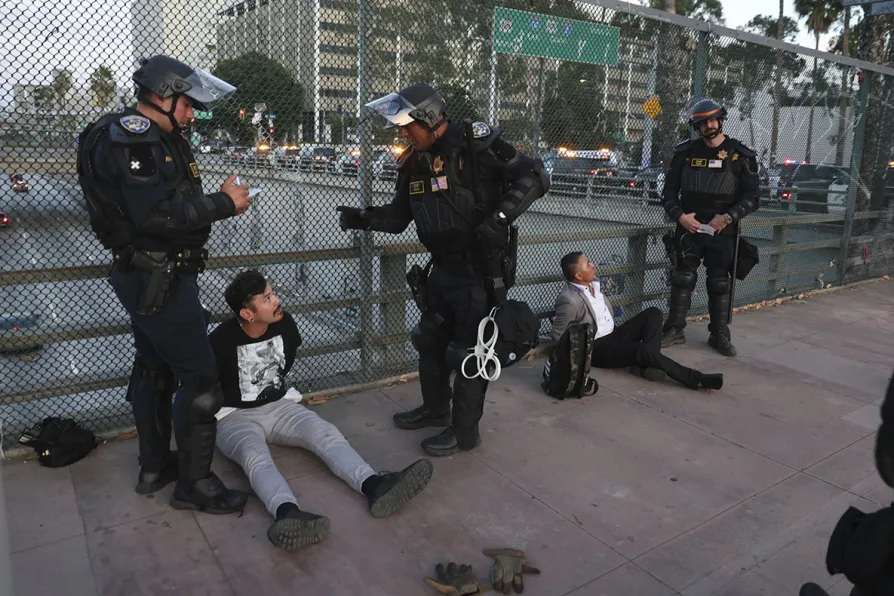
 California Highway Patrol officers arrest two men after a dispersal order during a protest, June 14, 2025, in Los Angeles
California Highway Patrol officers arrest two men after a dispersal order during a protest, June 14, 2025, in Los Angeles
LOS ANGELES Mayor Karen Bass has lifted a curfew imposed last week following widespread protests against President Donald Trump’s immigration crackdown and the deployment of federal troops to the city.
The protests, largely concentrated around government buildings downtown, erupted after Mr Trump ordered a surge in immigration enforcement and deployed the National Guard and Marines.
Little Tokyo, a historic Japanese-American neighbourhood near a federal detention facility, remained heavily guarded by military forces today, with many storefronts boarded up.
Don Tahara, owner of Far Bar, said that vandalism and break-ins had taken a toll.
But as a third-generation Japanese-American, he sympathised with the protesters’ cause, drawing parallels between the Trump administration’s raids and the internment of Japanese Americans during World War II.
“The problems that Little Tokyo had 75 years ago was basically the federal government coming in and imprisoning all of them in concentration camps,” Mr Tahara said.
“They were uprooted from their homes and businesses, their churches … we’re seeing a repeat of that.”
Immigration raids have also hit small business owners hard.
Juan Ibarra, who runs a fruit and vegetable outlet in LA’s central produce market, told Reuters that his business has been devastated.
The market, usually packed with Hispanic food vendors, has emptied since Immigration and Customs Enforcement agents began raids, including one at a textile factory nearby.
Mr Ibarra said that his clients are either in hiding or too afraid to travel.
Many of the market’s 300 workers — undocumented immigrants — have stopped showing up.
“It’s pretty much a ghost town,” he said. “It’s almost Covid-like. People are scared.”
Immigrants make up a third of California’s workforce and 40 per cent of entrepreneurs, according to the American Immigration Council.










